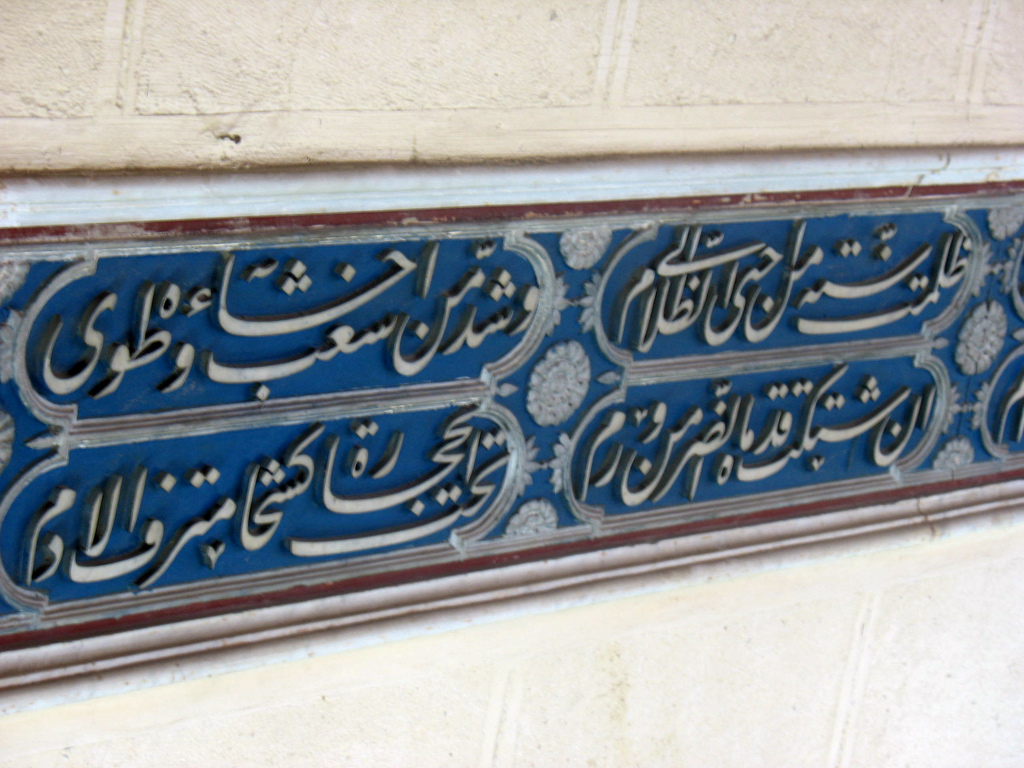Al-Busiri on:
[Wikipedia]
[Google]
[Amazon]
 Al-Būṣīrī (; 1212–1294) was a Sanhaji Sufi Sunni Muslim poet belonging to the
Al-Būṣīrī (; 1212–1294) was a Sanhaji Sufi Sunni Muslim poet belonging to the
 Al-Būṣīrī (; 1212–1294) was a Sanhaji Sufi Sunni Muslim poet belonging to the
Al-Būṣīrī (; 1212–1294) was a Sanhaji Sufi Sunni Muslim poet belonging to the Shadhili
The Shadhili Order () is a tariqah or Sufi order. The Shadhili order was founded by Abu al-Hasan al-Shadhili in the 13th century and is followed by millions of people around the world. Many followers (Arabic ''murids'', "seekers") of the Shadhil ...
, and a direct disciple of the Sufi saint
The term ''wali'' is most commonly used by Muslims to refer to a saint, or literally a "friend of God in Islam, God".John Renard, ''Friends of God: Islamic Images of Piety, Commitment, and Servanthood'' (Berkeley: University of California Press ...
Abu al-Abbas al-Mursi. His magnum opus, the ''Qaṣīda al-Burda
''Qasīdat al-Burda'' (, "Ode of the Mantle"), or ''al-Burda'' for short, is a thirteenth-century ode of praise for Muhammad composed by the Shadhili mystic al-Busiri of Egypt. The poem, whose actual title is "The Celestial Lights in Praise of ...
'' "Poem of the Mantle" in praise of Prophet
In religion, a prophet or prophetess is an individual who is regarded as being in contact with a divinity, divine being and is said to speak on behalf of that being, serving as an intermediary with humanity by delivering messages or teachings ...
Muhammad
Muhammad (8 June 632 CE) was an Arab religious and political leader and the founder of Islam. Muhammad in Islam, According to Islam, he was a prophet who was divinely inspired to preach and confirm the tawhid, monotheistic teachings of A ...
is one of the most popular Islamic poems of the genre. It is in Arabic
Arabic (, , or , ) is a Central Semitic languages, Central Semitic language of the Afroasiatic languages, Afroasiatic language family spoken primarily in the Arab world. The International Organization for Standardization (ISO) assigns lang ...
, as is his other ode named " Al-Hamziyya".
Biography
He was born in Dalāṣ, a small town in Beni Suef Governorate inEgypt
Egypt ( , ), officially the Arab Republic of Egypt, is a country spanning the Northeast Africa, northeast corner of Africa and Western Asia, southwest corner of Asia via the Sinai Peninsula. It is bordered by the Mediterranean Sea to northe ...
(despite the similar name, this town is not to be confused with Dellys, in Algeria
Algeria, officially the People's Democratic Republic of Algeria, is a country in the Maghreb region of North Africa. It is bordered to Algeria–Tunisia border, the northeast by Tunisia; to Algeria–Libya border, the east by Libya; to Alger ...
), and wrote under the patronage of Ibn Hinna, the vizier
A vizier (; ; ) is a high-ranking political advisor or Minister (government), minister in the Near East. The Abbasids, Abbasid caliphs gave the title ''wazir'' to a minister formerly called ''katib'' (secretary), who was at first merely a help ...
. His father was from Abusir
Abusir ( ; Egyptian ''pr wsjr'' ' "the resting place of Osiris"; ) is the name given to an ancient Egyptian archaeological pyramid complex comprising the ruins of 4 kings' pyramids dating to the Old Kingdom period, and is part of the ...
, hence his nisba ''Al-Būṣīrī''. Sometimes, he also used his nisbe ''Dalāṣīrī'' as his mother belonged to the town of Dalāṣ.
In his ''Qaṣīda al-Burda'', he claims that Muhammad cured him of paralysis
Paralysis (: paralyses; also known as plegia) is a loss of Motor skill, motor function in one or more Skeletal muscle, muscles. Paralysis can also be accompanied by a loss of feeling (sensory loss) in the affected area if there is sensory d ...
by appearing to him in a dream and wrapping him in a mantle. The poem has had a unique history (cf. Ignác Goldziher
Ignác (Yitzhaq Yehuda) Goldziher (22 June 1850 – 13 November 1921), often credited as Ignaz Goldziher, was a Hungary, Hungarian scholar of Islam. Alongside Joseph Schacht and G.H.A. Juynboll, he is considered one of the pioneers of modern aca ...
in ''Revue de l'histoire des religions'', vol. xxxi. pp. 304 ff.). It has been frequently edited and made the basis for other poems, and new poems have been made by interpolating four or six lines after each line of the original. It has been published with English translation by Faizullabhai (Bombay
Mumbai ( ; ), also known as Bombay ( ; its official name until 1995), is the capital city of the Indian States and union territories of India, state of Maharashtra. Mumbai is the financial centre, financial capital and the list of cities i ...
, 1893), with French translation by René Basset (Paris, 1894), with German translation by C. A. Ralfs (Vienna, 1860), and in other languages elsewhere.
References
Further reading
*For a long list of commentaries, etc., cf. C. Brockelmann's ''Gesch. der Arab. Litteratur'' (Weimar, 1898), vol. i. pp. 264–267 * La Burda du désert, T. Ikbal, F. Tidjani, M. Vâlsan, Science sacrée, 2015 13th-century Berber people 13th-century Arabic-language poets 13th-century Egyptian people Berber Muslims Sunni Sufis Sufi writers Berber poets Sanhaja {{Sufism-stub